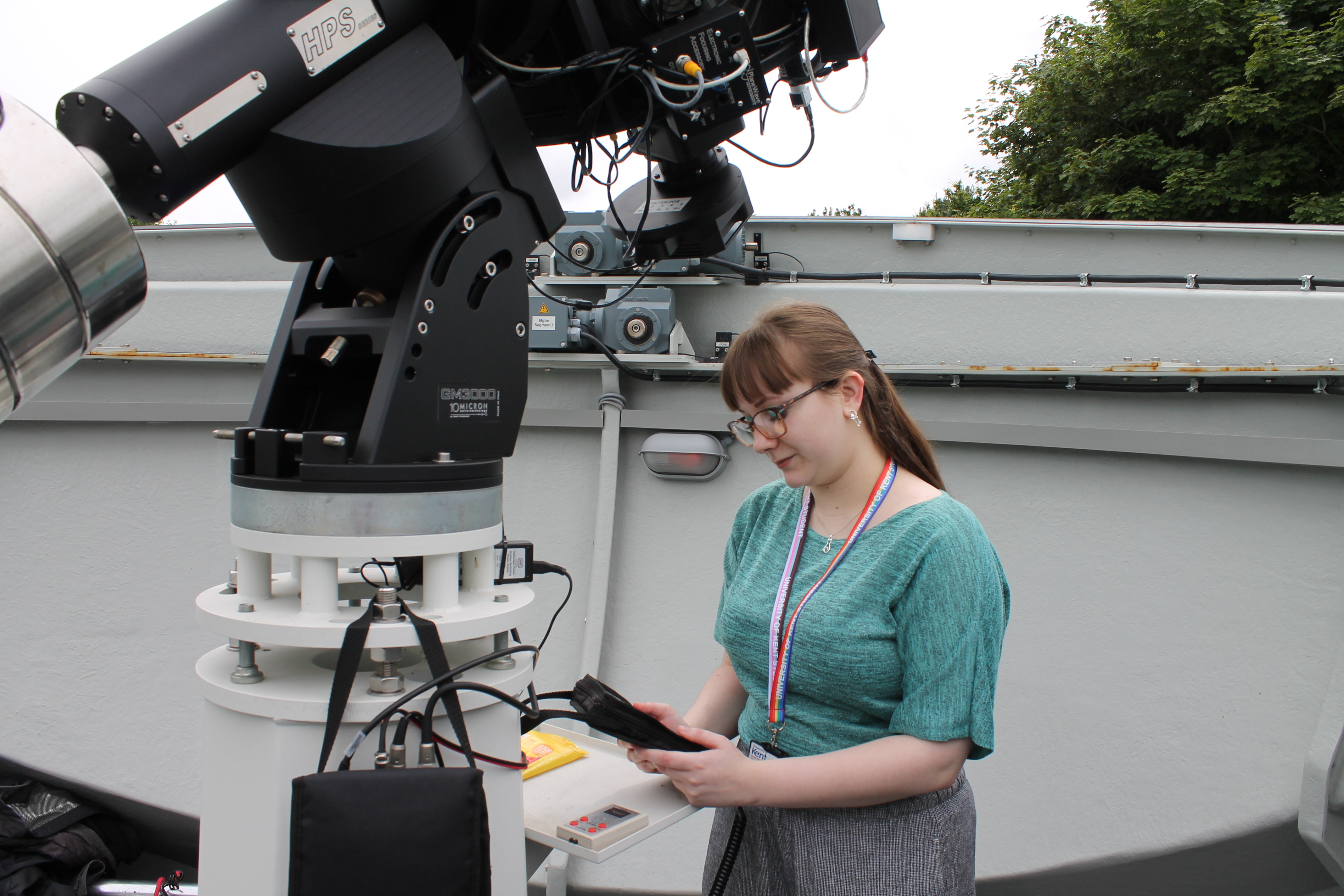Becky Long is an Astronomy, Space Science and Astrophysics with a Foundation Year student who is studying on the MPhys integrated Master’s course. See below for her experiences on the course, what it has been like coming back into education, and the breadth of support at Kent available to her.
Why did you choose Astronomy, Space Science and Astrophysics with a Foundation Year?
I chose to study Astronomy, Space Science, and Astrophysics with a foundation year and integrated Master’s as they are subjects I have been interested in for a long time. This degree was one I had looked at repeatedly, either online or in prospectuses for several years. I decided to apply for a foundation year as I felt this would be a smoother learning curve. I had been in contact with the admissions officer, Dr Kinnear, who was able to give some general ideas of what to look for in a level 3 college course. I had been out of education for 18 years and college was a huge step, so the foundation year felt like the right next step in my education.
What made you choose Kent?
Kent is my local university, it was not an option to study away from home. Kent also offers the Space Science side of the degree, whereas other universities tend to offer physics with astrophysics. I commute to campus, some days driving and others using the campus shuttle bus, which is free for students.
How did you find coming back into education after an extended period?
Coming back to education was terrifying and it has been hard work but very rewarding. It has exceeded my expectations. I had visions of being the oldest student and not being able to make any friends. I also worried about not understanding what was being taught or getting the grades I needed. University is a different experience to college, but not in a bad way. It is a lot more independent. I feel like I have achieved so much more than I thought possible. And whilst I am the oldest in my cohort, I have made lots of friends and everyone has been very kind.
I feel like I have achieved so much more than I thought possible.
How have you found the difference between foundation to first year?
Foundation year to the first year has been a good transition, I think because the worry of starting something new in a new place happened in the foundation year. It felt comfortable as I knew the university already and some of my friends from foundation have also gone into first year. The course content has been good, it is a steady build on top of what has already been taught. Without the foundation year, I would have struggled as I had no prior knowledge of calculus. It has also allowed some breathing space as the foundation and first year do not count towards your final degree grade, but you do need to pass them to progress through the degree.
How do you find the assessments? Is there support?
The assessments can be tough, but they are good for learning what has sunk in and what needs refreshing. My degree is a mixture of assessments and exams. There is plenty of support available. Academics are always happy to help where they can. You can book 1-1 appointments with them or simply email them. They have all been very helpful and reassuring. I have also used skills for academic success in my foundation year. They had a timetable across the year of different online talks that I joined. These ranged from essay writing and breaking them down bit by bit, to maths support. You can also book 1-1 appointments with them and they can help you with improving your work. I have used them with calculus help when I have been stuck with a particular area.
In what ways has Kent supported you?
Kent has supported with different scholarships. They range from academic excellence scholarships to working as a student ambassador and receiving the stipend scholarship. They also arrange talks with professionals in the field, I have been to a couple of talks and they are always interesting.
Best physics fact?
Fun physics fact… When there is no air resistance (a vacuum), a feather a hammer dropped at the same time will fall to the ground at the same rate. This was demonstrated by one of the crews that visited the moon.

